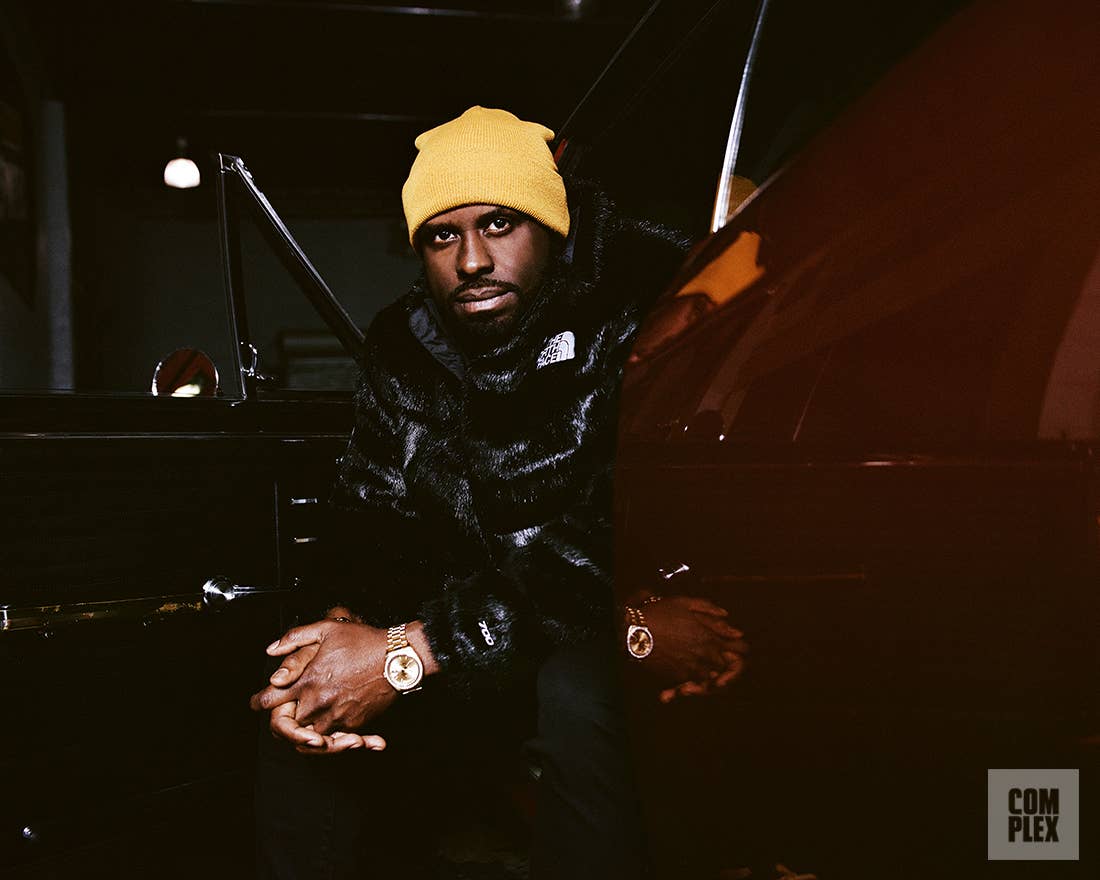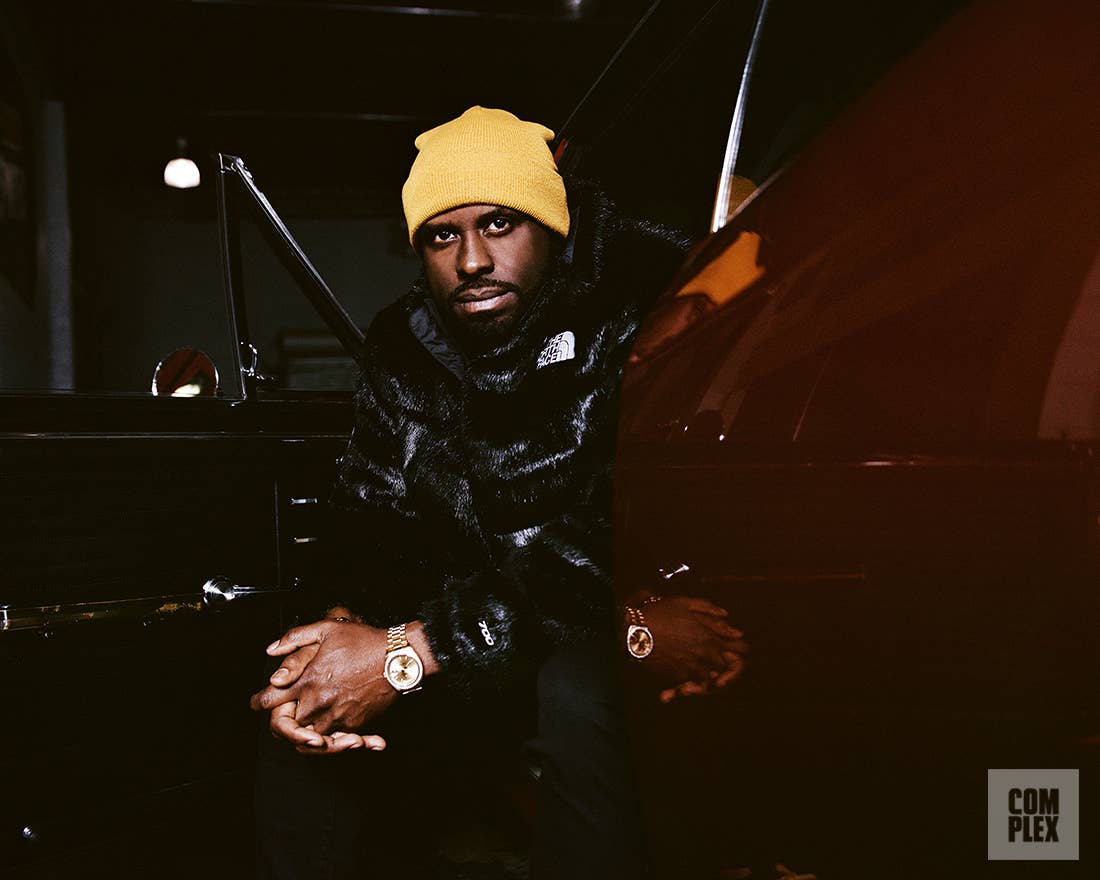
Funk Flex has an opinion about everything. Pick any topic about rap, from its origins until now, and he’ll unleash an endless stream of thoughts on the matter.
Right now, he’s lounging on a vampire red leather couch in “the man cave” of his Westchester County home, spewing out his hottest takes. Some of his opinions are direct, like, “Radio doesn’t break artists anymore. It helps them become superstars.”
Many of them are quite funny. “Social media has made stand-up street guys become nuts,” he snickers. “Like, ’90s executives and rappers, man. A lot of grown men that I never thought would have acted like this, due to the way their personality was back in the days. Now I watch them lie about what they did and about their participation in shit.”
Some of his views are outwardly harsh. “I firmly believe if you are a rapper that is 35 and older, you should do five-song EPs,” he says. “And I’m really being nice. I don’t want 50 cuts from you, my nigga. You’re going to give me 14 cuts about being inside. I already know what it’s like to be inside.”
And others, though honest and accurate, are still difficult to accept. “I don’t think DMX is going to make it,” he whispers, his eyes buried in his iPhone screen as he searches for updates. One day later, DMX’s death is confirmed.
That’s Funk Flex. He always gives you his truth—the fair, the absurd, and the unapologetic—whether you’re ready for it or not. It’s a simple formula that has worked time and time again for over three decades in the music business. And as he nears 30 years on Hot 97, home of his popular nationally syndicated show, while giving his media hub InFlexWeTrust a bigger push, the DJ and radio personality isn’t thinking about slowing down or switching up.
Gold plaques from his mixtape series 60 Minutes of Funk cover a narrow wall behind the red couch he’s sitting on. Flex rises from his seat only briefly to turn off an arcade game in the corner, which has been making loud explosion noises similar to the Flex bombs that have become a signature part of his show. As he finds a comfortable position once more, he takes me back to the beginning.
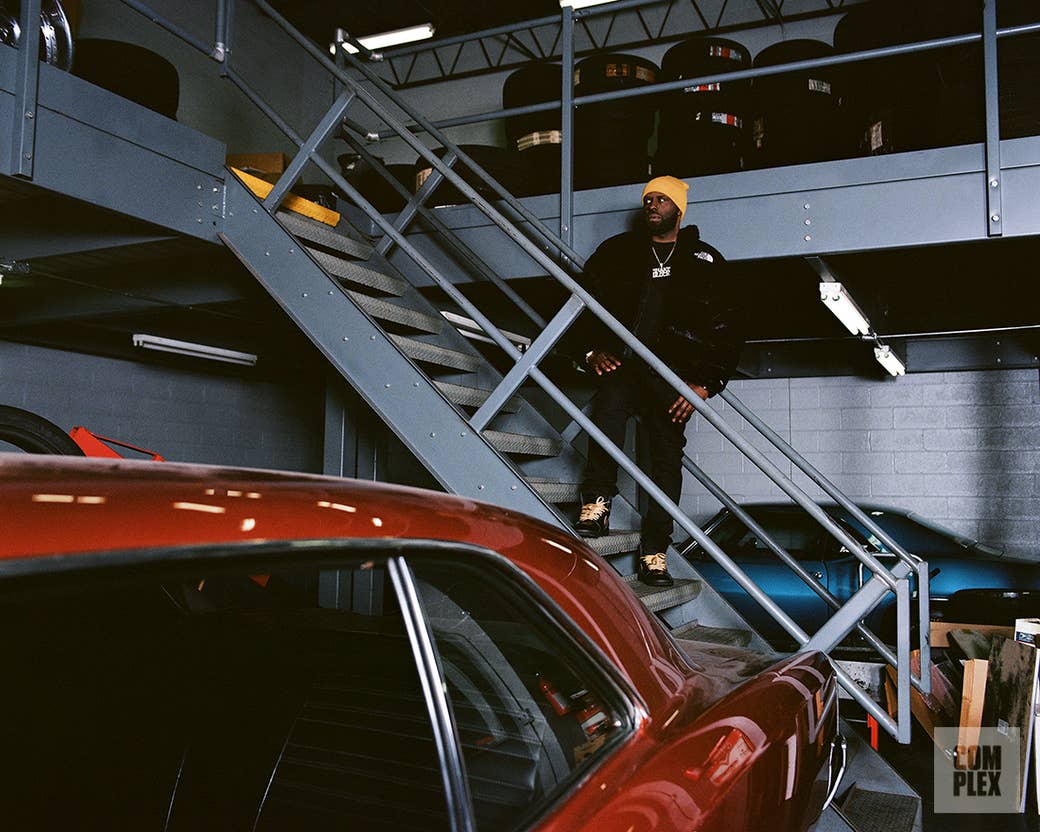
Flex was born Aston George Taylor Jr. to Jamaican immigrant parents in the Bronx. At age 14, he developed a passion for New York City’s growing rap scene. Now, he name-drops pioneers like the Cold Crush Brothers, Grandmaster Caz, All Mighty K.G., Charlie Chase, and Tony Tone as key players who piqued his interest. “Those were my legends,” he says, listing how each artist influenced his understanding of what was happening in rap at the time. “They made very funky routines. And when I say routines, they didn’t have record success. They had a couple of records, and the records were garbage. They’re going to be upset that I said that. But their routines were so strong.”
Taking note of my age, Flex frequently draws millennial pop culture or sports references during our conversation, attempting to put things into perspective. Now, he uses Starz’s popular Power series to explain the demand for the hottest routines in the ’80s. “If you’re in a circle of people, those who saw the last episode of Power control the room, right?” he asks. “The Cold Crush Brothers were the guys who made me understand the word exclusivity in that way. If you had the latest live Cold Crush routine, you were the man in the neighborhood.”
Flex was too young to attend the live shows, but he knew the older kids who were going and persuaded them to let him make a copy of their recordings. “I would play the latest routine out my window on my block. So the older kids would gather underneath my window. They didn’t hang with me because they were five years older than me, but they knew Junior was going to have the newest Cold Crush tape.”
At 16 years old, Flex turned to DJing, but he hadn’t settled on a name just yet. At the time, no one was certain that rap would stick around for long. “There was no such thing as trying to be a professional DJ,” he notes. “You kind of just wanted to be known on your street or your block. You’re looking for neighborhood success.” After gaining local traction dubbing live battles, he set his next goal. “I wanted to play a bar with 50 people. If I played a bar with 50 people, I could die the next day,” he asserts. It wasn’t quite a bar, but Flex did manage to move from his bedroom window to teen parties and events at his high school.
“If you don’t write, shut the f*ck up.”
In 1983, he noticed Bronx DJ Mr. Magic and artist Melle Mel—best known as the lead vocalist of Grandmaster Flash and the Furious Five—on the radio. “That became the bar for me,” he remembers. “I definitely wanted to be a radio DJ when I heard them.” Before long, he settled on his stage name. “Funkmaster Flex” derives from a graffiti installation he spotted on the side of his old girlfriend’s school back in ’84. “It said DJ Funkmaster and the Imperial Three. I don’t know who that was, but that name fit me,” he recalls. “I took it. I was in search of a name and I really liked it. Then I went from there.” For a while, he was just DJ Funkmaster. But he eventually added the Flex, making the name “complete.” Lately, though, he’s simply been going by Funk Flex, which he claims is “an adaptation to where the game and the millennials have gone.”
In his early 20s, Flex started frequenting nightclubs like Club Mars and The Tunnel in Lower Manhattan, but not as an active DJ. Instead, he’d go as an observer, watching big acts like Run-DMC, Slick Rick, and Eric B. & Rakim. Early sightings of gaudy jewelry, “slimy party promoters,” drugs, and dancing fascinated him. When he discovered DJ Kool Red Alert in a club in ’87, he focused in on his vision even more.
“Red Alert had the best blueprint that started to mold me,” he says. “He didn’t take money [to play specific records]. He wasn’t afraid to tell a rapper his record wasn’t it. He stood on his own two.” Red Alert was the first DJ to perform through the Universal Zulu Nation, and he helped break artists like A Tribe Called Quest and Queen Latifah. By this time, Red Alert was one of the biggest DJs in the country, and his sets were broadcast on the popular radio station Kiss FM. Soon, Flex became his protégé, filling in when Red Alert was out of town. If he went to a convention, Flex would step in. “I mean, that’s like being in the seventh game of the final playing for Red Alert,” he says now, using one of his sports analogies again. “Everybody fucking hears you. Either you sink or swim.”
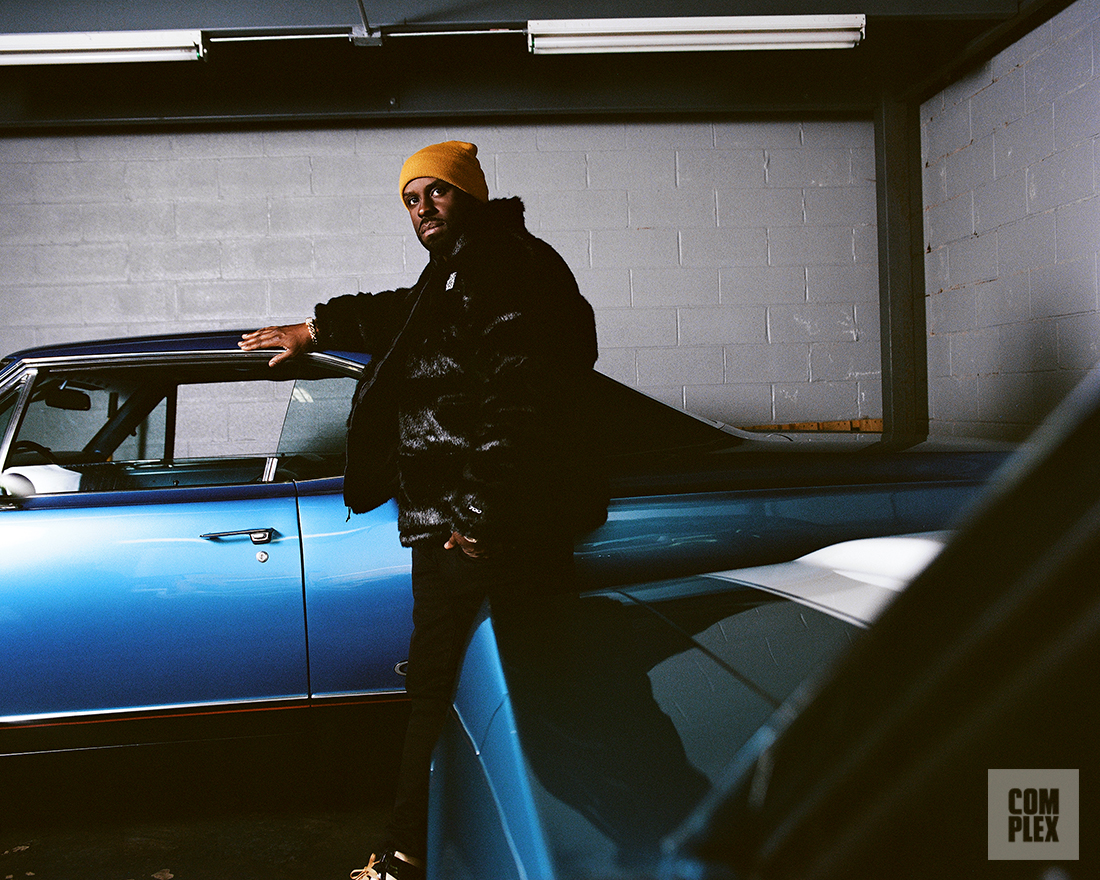
As we’re talking, Flex freezes, staring into blank space as he carefully considers his words. We’re flying past the first hour of the interview and only just getting to the late ’80s in Flex’s career timeline, but he takes time to emphasize that in the closing years of this decade, he’d reached a dead end. He snaps, jolting back to reality, and reveals that he’d been fired from multiple radio station gigs: a stint at BLS and another with Chuck Chillout. “I didn’t have a style yet,” he says, admitting he understood their decision to fire him. “I didn’t have a personality. I didn’t have a reason why to choose me.” So when Red Alert gave him a chance, it changed everything.
“If it wasn’t for Red Alert, there would’ve been no Clark Kent, there would’ve been no Kid Capri, there would’ve been no Flex,” he declares. “When this guy tells a party promoter he’s not going to do the club and says, ‘Why don’t you call so-and-so?’ it’s a different type of big. The promoter is not going to tell Red no.” And that’s exactly what happened on a Saturday night at Club Homebase. Red pulled out and tapped Flex to fill in. The club, which was advertising on Hot 97, repeatedly blasted his name over airwaves all week.
“Everybody in the city knew I was the next nigga,” he says, as a football magically appears in his hands and he tosses it back and forth between them. Soon after the opportunity from Red Alert, Flex received two radio job offers, one from Kiss FM and another from Hot 97, which he would officially land in 1992. Choosing Hot 97 wasn’t an easy decision, though. He was branded a “sellout” for signing with a station that played house and dance music like C+C Music Factory and David Morales. Critics warned him that no Black club promoter would hire him again. But Flex had a strategy.
“[Biggie’s crew] would wait 30-deep in the club when I’m on the set, like, ‘You better f*cking play our record.’”
“I knew that the Spanish kids, the white kids, and the Black kids didn’t have a champion,” he says, the football still floating from palm to palm. “See, the Black kids, they had Kid Capri, Red Alert, and Clark Kent [on Kiss FM]. They were locked the fuck in. I was really fifth in line, even though I’m the hottest nigga in the city. I knew if I’m in there, I could be their hero, their hip-hop hero. I could get some traction… The most important thing that I did was go rogue when I went to Hot 97.”
On Hot 97, he’d play hip-hop throwbacks like Keni Burke’s 1982 hit “Risin’ to the Top,” but he also made it a point to add his own footnotes about the records. “DJs weren’t saying the history of the song; they were just playing. So if I play ‘Sucker M.C.’s’ by Run-DMC for the white and Spanish kids, I would say, ‘This used to be crazy at the Skate Key in the Bronx.’ Then the Black kids started to gravitate to me, but the Spanish and the white kids weren’t leaving.”
Flex doesn’t remember exactly how he formed the loud and bold persona he’s known for today. Asked about his own personality at the time, he describes himself as a “loner” who didn’t always fit in. But after some reflection and fidgeting, he finally pinpoints the moment he knew his voice carried weight. “I started to say where the speed traps were in New York,” he recalls, laying back as if he’s in his own therapy session. “That’s how kids figured out I was from the Bronx.” Until then, most of his listeners thought he was from Brooklyn because of his history lessons between records. “I’d say, ‘Yo, there’s a cop waiting on 233rd underneath the train station to give you a ticket,’ then start to joke, ‘He’s in there in a nasty detective car.’ When I went in the street, niggas was like, ‘Yo, you giving out checkpoints for the cops. It’s crazy!’”
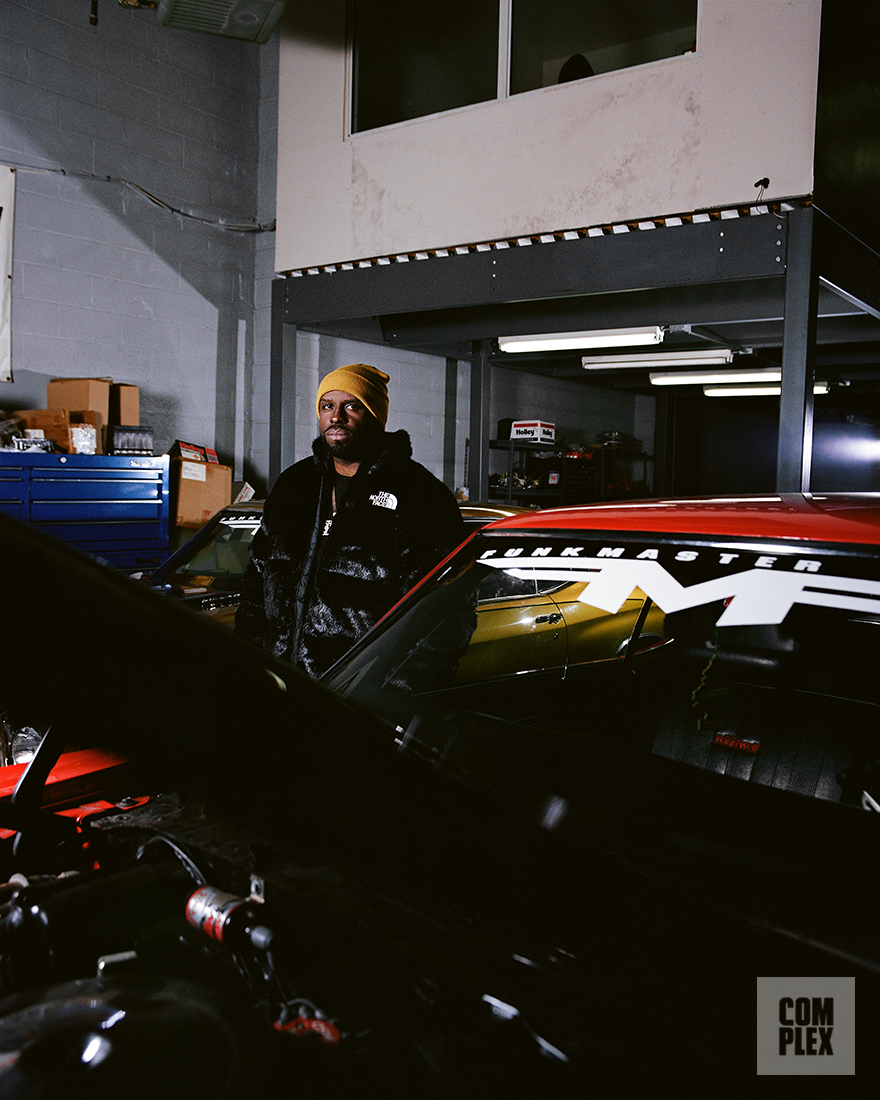
Flex had a more difficult time winning over veteran rappers. He was the hottest DJ in the clubs, and yet most artists wouldn’t show up for interviews or record 15-second radio drops. “[They] wouldn’t fuck with me,” he laments. “I remember I had an interview with Run-DMC—didn’t show up. I had an interview with Naughty by Nature—Treach didn’t show up. The successful veteran rappers of the moment weren’t behind me. I knew I had to grab and make new stars.”
In 1994, Funk Flex accepted an interview with up-and-coming rapper The Notorious B.I.G. Now it’s revered as Biggie’s first radio interview, but Flex isn’t as impressed with the achievement. He insists that it is only glorified now by the younger generation, but at the time, no one knew who Notorious B.I.G. was. Puff had just lost a distribution deal and was hoping to use radio to get his artists recognition. “Biggie is a nobody at this time,” Flex says. “He couldn’t go to Kiss and BLS and get an interview. He’s a backpack rapper.” He remembers Biggie wore army fatigues the day he visited the station, adding, “He was in a rush to get back to the corner and make money.” Craig Mack, who was known in hip-hop’s underground scene, was also there, but appeared “a little more focused because he was more seasoned.”
Later that summer, Notorious B.I.G. dropped his debut album, Ready To Die, catapulting into the spotlight. The album features the hit single “Juicy,” which includes a shoutout to Funkmaster Flex. “I wasn’t supposed to get shouted on that record,” Flex interjects, noting that all of the other DJs mentioned on the track (Ron G, Brucie B, Kid Capri, Lovebug Starski) were mixtape DJs.
He smiles before diving into a story that takes him back to his “petty Flex” days. It begins before the release of “Juicy,” when Puff was working for Andre Harrell under Uptown Records. As he tells it, Harrell loathed him. “Andre Harrell always liked any other DJ but me. Russell [Simmons], too. I was never their cup of tea,” he explains. “They always treated me like a bag handler.” He clarifies that he means no insult to Harrell, who passed away in May 2020, but says this is just what happened. Harrell invited Flex to DJ an Uptown Records party, which struck him as odd, but he accepted anyway. When he arrived, though, he ran into Kid Capri, who was setting up. “And you know what they say to me? ‘Nah, no one called you,’” he says now. “I had steam coming out of my ears. There was this boys’ club that I wasn’t allowed in.” Flex admits he held a grudge for years after this incident. Some of the guys who were involved reached out to him for favors down the line, and he rejected every request. And after the incident, he vowed never to play a song from Uptown Records again.
“I love 97 percent of everything Jay-Z does. I just give my opinion on the 3 percent and everyone thinks it’s the weirdest thing.”
Now, Flex is riled up. It becomes difficult to follow his story as he moves from one end of the couch to the other, losing his train of thought. “Where are we at?” He pauses before snapping, “Ah, Puff. So I was choking them!”
Flex refused to play Biggie’s “Party and Bullshit,” which was released in partnership with Uptown. He fondly recalls Puff and Biggie’s aggressive response. “They would wait 30-deep in the club when I’m on the set, like, ‘You better fucking play our record,’” he says with a laugh. See, they didn’t understand this wasn’t actually about Biggie. Flex’s only issue was with Andre Harrell and Uptown. So when Big released his first record without Uptown, Flex “played it for an hour straight. [Biggie] couldn’t believe it.” Big was so elated by the twist of fate, he made a last-minute update to his next single. “Peace to Ron G, Brucie B, Kid Capri/ Funkmaster Flex, Lovebug Starski/ I’m blowin’ up like you thought I would,” he spits. And that’s how Funkmaster Flex earned a shoutout on “Juicy.”
Flex has plenty of anecdotes that begin and end like this Biggie story. While his adversaries always start out despising him, he says they eventually need him in the end. “Even when they hated my guts, they needed me. I knew it because they’d have 20 records and if I missed two, they’d hate my guts,” he says, laughing and shaking his head. He’s visibly amused by his ability to provoke such powerful emotions from rap executives and artists. But beyond perceptions of animosity, there appears to be an immense amount of trust in Flex as well. Trust is a fundamental ingredient of Flex’s brand—he’s marketed as the “most trusted in radio”—and it plays a big role in why he gets first interviews and exclusive content. Asked how he maintains peoples’ vote of confidence, he suggests only one thing matters: “I don’t take money.”
Payola—the act of secretly paying a commercial radio station to play a song—is something Flex has spoken about frequently for years, and he’s just as adamant about it today. Red Alert was the first person to advise him never to accept payment from labels. But until Red Alert came along, his other mentors encouraged the practice. In fact, Flex reveals that he used to retrieve payments for Chuck Chillout back in the day. His history as Chuck Chillout’s “bag man” would later haunt him when he got his own gig on the radio.
“When I’m on the radio, I’m seeing the same guys who gave me the money before for another DJ. And they’re like, ‘Take our fucking money, you piece of shit.’ And I’m like, ‘No, I don’t do that,’” he recalls. “That took me a long time to reinforce that that’s not what I do.” He says several labels, including Bad Boy and Roc-A-Fella, also offered him money in the early days, but eventually stopped when they knew he wouldn’t turn. “When that doesn’t work, then they build a relationship,” he points out.
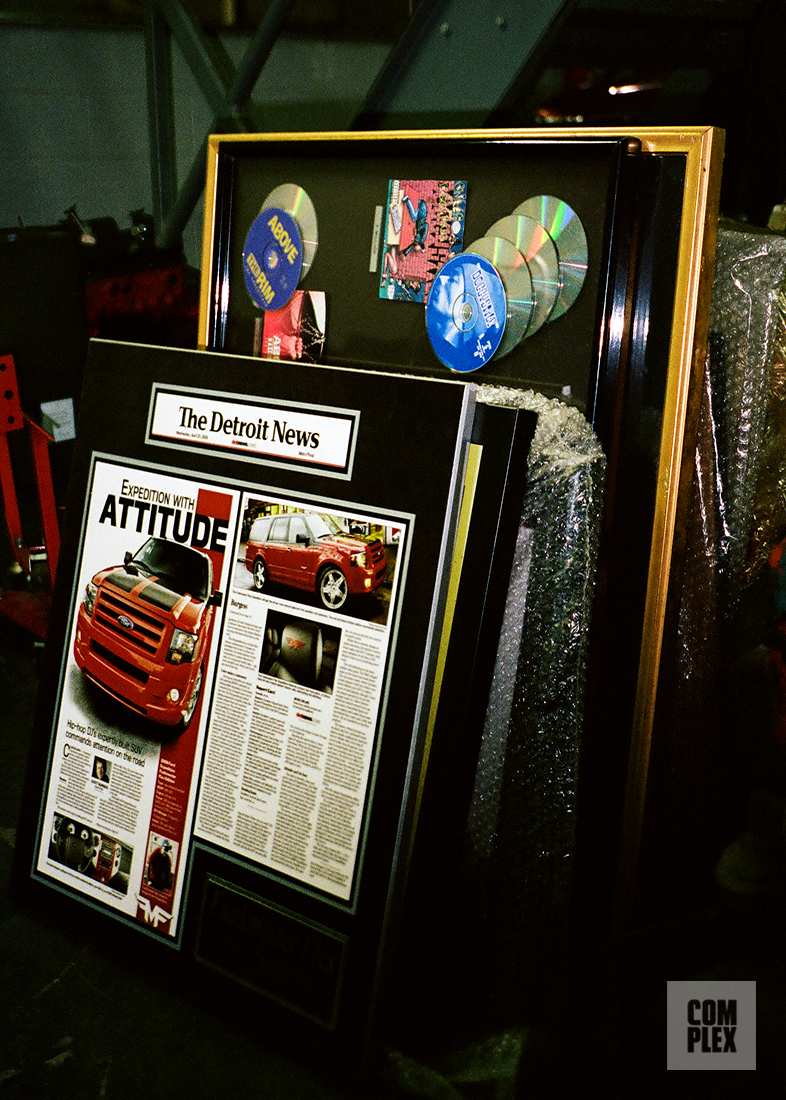
Flex acknowledges that radio DJs during that era were paid “peanuts” and could barely afford to pay their bills, let alone keep up with the luxurious lifestyle, but he says accepting payola is the fastest way to lose trust. “It will eat you afterwards, because it’s a guaranteed form of failure,” he says. “You lose your audience and people who believe in you because you start to cheapen them.” Payola diminishes creative freedom on air, he explains. “If you take payola, now you’ve got to play everything they give you. The minute you stop playing everything they give you, now they start telling your boss you’re taking money.” Today, payola is banned in the music industry, but Flex claims “80 percent of the DJs in New York City are on payroll… And I don’t care if you print that, OK?” He shrugs, leaning back in his seat.
There’s no one in the music industry who Funk Flex won’t talk about by name. In the last two hours, he’s named record labels that offered him money and a woman who tried to exile him from the club circuit. “No one’s off limits,” he says matter-of-factly. And he isn’t bluffing. No executive, rapper, or businessperson is out of target. That even includes Jay-Z.
Jay-Z is one of the most influential artists in the music industry, but Flex says he’s fair game when it comes to criticism. In the past, Flex has claimed Hov was “the most sensitive motherfucker on the planet” and called his 2019 deal with the NFL “goofball shit.” He insists it’s nothing personal, though. “I love 97 percent of everything Jay-Z does,” he says. “I just give my opinion on the 3 percent and everyone thinks it’s the weirdest thing. Everybody looks at me like I’m the fucking bearer of bad news.” Flex swears he’s only “spazzed” on Jay-Z twice in his life, so he’s baffled that people think he has an issue with him. While he says Jay “manages radio DJs,” which could influence their comments, Flex suggests the mogul isn’t the puppet master in this scenario. “I got to be honest, I don’t think [Jay-Z] puts that energy out,” he says. “I’ve often wondered why people come at me like that. But they don’t come at me in a bad way. They’re just like, ‘Are you sure?’ And I’m like, ‘Yeah, I’m fucking sure. What the fuck are you talking about?’ This shit happened! Are you people not seeing the same thing I saw?”
“All of the DJs feel the same way I do, but they can’t speak about it because they take money. This is why labels hate my guts. They can’t shut this motherf*cker up.”
Despite the backlash, Flex continues to defend his right to criticize some of Jay-Z’s actions without censorship, which is why he’s rejected Roc Nation’s offers to work with him. “Roc Nation’s offered me a lot of deals,” he says. “And I had said to the person that offered me the deal, ‘Is it OK if I comment on Jay-Z?’ They said, ‘Yeah.’ And then I said, ‘You’re lying. That’s not even why you’re giving me this deal.’ It was a lot of money and I said no, but I love you guys.”
Flex insists his takes on Jay (or any other rapper) aren’t extraordinary. “All of the DJs feel the same way I do, but they can’t speak about it because they take money. This is why labels hate my guts. They can’t shut this motherfucker up.” Flex is committed to the idea of freedom of speech, even if it means ruffling a few feathers in the industry. This is one reason why he appreciates controversial personalities like DJ Akademiks. “I’m a big fan of Akademiks, where most people aren’t,” he says. Though he can understand when Ak is “reckless,” he sees some parallels with his own career. “All those artists and people are trying to take away his freedom of speech. That’s the key in this music business, because if they can shut him the fuck up, then they can do what they want to do,” he explains. “They don’t do that with other ones because they already control them.”
Once Flex gets going on the topic, there is no stopping him. He says it’s the “purist” in him. Just as it seems he might discuss payola for a few more hours, a member of his team appears from the nearby kitchen with a green salad in tow, and he leaves a gap in the conversation for me to transition to another topic.
Drake is another influential rapper Flex is perceived to have beef with. But again, he says people equate a few critical comments with contempt. To be fair, though, all evidence points to a feud. Since 2015, the two have traded shots online. Flex called Drake out for not writing his own raps, and he fueled the rapper’s feud with Meek Mill. As recently as March 2020, they exchanged words in the comments section of a Verzuz battle, calling each other “pussy” and “soft.” Asked where the two stand today, Flex can’t find the words. Until it’s mentioned, he says he had no recollection of calling Drake soft. He promises there is no hostility for Drake, the man. As for Drake, the artist, he says he’s a top five rapper of all time. “He’s never going to fall off,” he adds, crunching on a salad crouton.
Anyone can appreciate Flex’s wild outbursts on rap royalty and his war against a corrupt music business (“It’s a bottomless pit of happiness and depression”). But it’s also his deep appreciation for the new generation that keeps him relevant. Though he is often critical of the entitlement of millennials and Gen Z, he says he’s excited by watching the new kids run the game, and his Funk Flex Freestyles are where he gets to see a lot of them shine. He initially started the Freestyles series to “compete” with other stations, but now he recognizes its influence on younger listeners. Black Thoughts’s 10-minute rap in 2017 is his favorite freestyle, but he also has fond memories of the moments with younger stars that turned into viral memes.
Tyler, the Creator’s flirty freestyle was particularly memorable. “I think sometimes people troll because they either want to figure out how you really feel or they want you to self-destruct. I’m OK with whatever his sexuality is. I don’t know if he’s playing or if he’s not playing. His life is his life,” Flex says. “But there were people after that interview that I was disappointed in, in the music industry. The energy they took from the interview... I was like, ‘But fam, whatever he wants to do, why do you care? Why does it offend you so much?’”
Flex’s favorite thing to talk about right now is up-and-coming artists. He would rather name his top five rappers of right now—DaBaby, Lil Baby, Roddy Ricch, Lil Tjay, and A Boogie (in no particular order)—than his favorite of all time. It’s a refreshing perspective, considering how many of his peers are aloof when it comes to change (he suggests it’s because they’re “stuck in their own way”). Flex says he prioritizes working with young talent as a strategy to stay ahead of his competition, but a majority of his motive stems from his memories of first getting into the business. “I like seeing that look on those kids’ faces. It reminds me of my childhood, because I always remember that first shot I got,” he says. He fondly recalls Young M.A calling to thank him for playing her record “Ooouuu” just before it broke the top 20 in 2016.
Flex’s affinity for emerging talent is the influence behind InFlexWeTrust, a media hub in partnership with Create Music Group that is home to a series of music collaborations between Flex and rising stars. The hub, which he says is like a “mixtape on steroids,” already released singles like the posthumous collaboration “Lurkin” with King Von, “Game Time” with Fivio Foreign, and “Re Route” with Rowdy Rebel. Each video has more than 10 million views on YouTube. While the string of singles would suggest Flex is gearing up for an album (an idea he teased in December 2020), he says he’s content with just releasing songs. “I like to keep the collabs. I like churning the music out,” he notes. “It gives me the opportunity to work outside of radio and make some good songs that I really want to make and enjoy.”
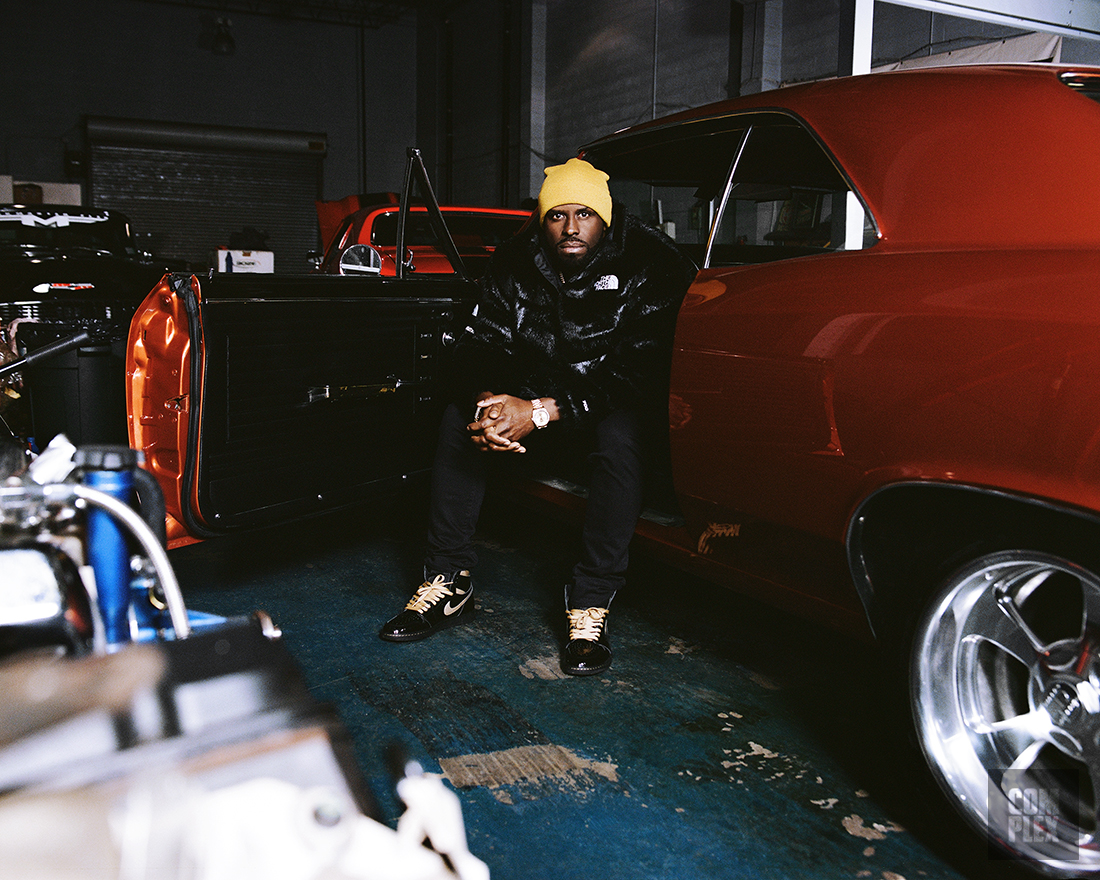
This year, he’s plotting two single releases a month, including collaborations with DaBaby, Lil Baby, Post Malone, Lil Durk, and Fredo Bang. His newest record “You Know,” which Flex describes as an “aggressive street” anthem, is a collaboration with Staten Island’s CJ, who rose to fame with his breakout single, “Whoopty,” in June 2020. Flex applauds CJ’s musical ear, but also acknowledges the growing controversy around him.
“They’re trying to cancel CJ. I see it,” he says disappointedly. CJ has been criticized by New York rappers who feel as though he is ripping off the Brooklyn drill sound and misrepresenting gang affiliations to sell music. Brooklyn’s 22Gz even released a diss record over CJ’s “Whoopty” beat and called him a “dickriding groupie.” But Flex is more concerned with the media’s coverage of CJ. He brings up a Pitchfork article with the headline “New York Drill Rapper CJ Is Nothing But a Shameless Ripoff,” and says, “I felt that was too harsh on a new rapper. Let him breathe.” Still, Flex feels like CJ hurt himself by not responding to the backlash. “He doesn’t know how to use social media to deal with these motherfuckers. He’s not aggressive on social media, and sometimes you’ve got to be. I would’ve took the article and reposted it, and said, ‘I hear you.’” Flex has a three-strike rule for dealing with trolls or detractors. He’ll let you get away with saying it twice, but “the third time, I get you.”
There’s a lot more Funk Flex could say about… everything. It’s been over five hours since he first sat down on that red couch. We were supposed to visit his garage, where he keeps his large collection of muscle cars (Flex is a car aficionado), but the conversation just kept flowing. Then he pops one last crouton in his mouth and hovers over the edge of a wooden table in the center of his man cave. Taking the interviewer’s role, he begins throwing names up in the air as rapid-fire debate topics.
Cardi B: “Don’t claim king if you didn’t write them. I think that should be about every artist… That might be an old dog thing that I’m holding on to, but I believe if you don’t write, shut the fuck up.”
Rod Wave: “I like Rod Wave. I like the fact that he makes money singing about girls shitting on him. [Laughs.] If there is anything about music that I thought has helped culture, I love that a street kid can talk about and make other kids not feel embarrassed because a girl cut them off the other day. This guy’s singing about it. He’s chubby. He ain’t got 20 girls. He’s being honest.”
Kanye West: “I’m going to tell you something. I’ve lost my mother, and there’s a pain in Kanye’s eyes that I see every time he speaks. It’s that glossy, dead look. I don’t think he has grieved. I think that’s why he married Kim. He got a built-in family at his hardest time in life.”
Migos: “I think the Migos are canceled. I think the kids have already said, ‘We’re not fucking with them.’”
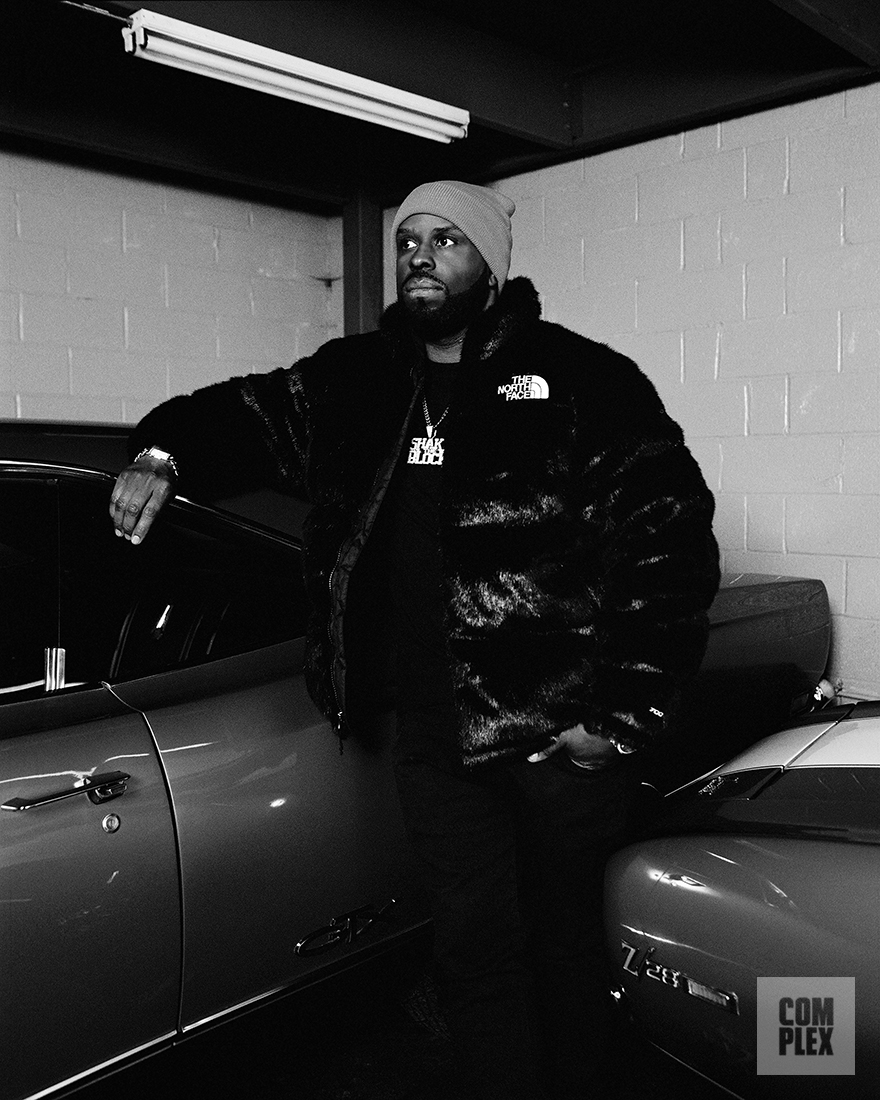
Flex could easily fill the pages of a memoir with all of the things he’s experienced and the opinions he’s formed along the way, but when I ask whether he’s ever considered a book deal, he says he’s not certain if it all belongs on record. “There’s versions of storytelling I don’t like. Yeah, I’ll tell you a story, but I’m not telling you a street story,” he explains. “I don’t think certain things should be told that happened in the street. I think it gets funny.”
Hood stories aside, he says he has way more to accomplish. Flex has no problem letting you know he’s in his 50s or calling himself the “oldest guy on social media.” He’s also aware that other radio DJs half his age tapped out years ago. “There’s guys that started after me and their careers ended before me because they never stepped away from the era they came in,” he says. Despite the inevitable effects of aging, retirement hasn’t crossed his mind. “I still remember the days I was on the outside looking in,” he tells me. “I don’t get paid to be on the radio on Saturday. My salary is from Monday to Friday, but I never gave up that show.” Flex mentions his competitor, who on Saturday nights is most likely sitting on a couch “with a burger watching Twilight Zone.”
“A young boy’s never going to take me out,” he says. “It’s not going to happen. He’s not going to outwork me. I’m mowing these young boys down. So if you say how long I could do it, I don’t know. DJing, the radio, the clubs, it’s all my passion.”

